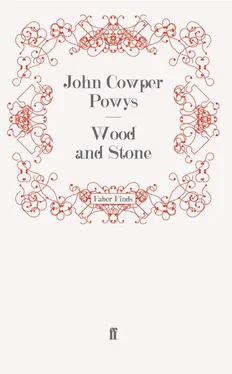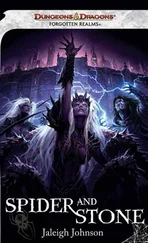He remorsefully blamed himself that he had not compelled his brother to come down with them to the sea. He recalled the half-hearted invitation he had extended to James, not altogether sorry to have it refused, and not repeating it. He had been a selfish fool, he thought. Were James swimming now by his side, his pleasure in that violet-coloured coast-line and that titanic rock-monster, would have been doubled by the revival of indescribably appealing memories.
He made a vigorous resolution that never again — whatever mood his brother might be in — would he allow the perilous lure of exquisite femininity, to come between him and the nobler classic bond, of the love that “passeth the love of women.”
Conscious that he must return without a moment’s further delay if they were to catch their train, he swung round in the water and let the full tide bear him shoreward.
On the way back he was momentarily assailed by a slight touch of cramp in his legs. It quickly passed, but it was enough to give the life-enamoured youth a shock of cold panic. Death? That , after all, he thought, was the only intolerable thing. As long as one breathed and moved, in this mad world, nothing that could happen greatly mattered! One was conscious, — one could note the acts and scenes of the incredible drama; and in this mere fact of consciousness, one could endure anything. But to be dead, — to be deprived of the sweet air, — that remained, that must always remain, the one absolute Terror!
Reaching his starting-place, Luke was amused to observe that the tide was already splashing over their rock, and in another minute or two would have drenched his clothes. He chuckled to himself as he noted how this very practical possibility jerked his mind into a completely different vein. Love, philosophy, friendship, all tend to recede to the very depths of one’s invaluable consciousness, when there appears a risk of returning to a railway station in a drenched shirt.
He collected his possessions with extreme rapidity, and holding them in a bundle at arm’s length from his dripping body, clambered hastily up the shore, and humorously waving back his modest companions, who were now being chaffed by quite a considerable group of soldiers on the cliff above, he settled himself down on a bank of sea-weed and began hurriedly to dry, using his waistcoat as a towel.
He was soon completely dressed, and, all four of them a little agitated, began a hasty rush for the train.
Phyllis and Polly scolded him all the way without mercy. Had he brought them out here, to keep them in the place all night? What would their mothers say, and their fathers, and their brothers, and their aunts?
Annie, alone of the party, remained silent, her full rich lips closed like a sleepy peony, and her heavy-lidded velvety eyes casting little timid affectionate glances at her so unexpectedly committed lover.
The crossness of the two younger girls grew in intensity when, the ferry safely crossed, Luke dragged them at remorseless speed through the crowded town. Pitiful longing eyes were cast back at the glittering shops and the magical picture-shows. Why had he taken them to those horrid rocks? Why hadn’t he given them time to look at the shop-windows? They’d promised faithfully to bring back something for Dad and Betty and Queenie and Dick.
Phyllis had ostentatiously flung into the harbour her elaborately selected bunch of sea-flora, and the poor ill-used plants, hot from the girl’s hand, were now tossing up and down amid the tarry keels and swaying hawsers. The girl regretted this action now, — regretted it more and more vividly as the station drew near. Mummy always loved a bunch o’ flowers, and they were so pretty! She was sure it was Luke who had made her lose them. He had pushed her so roughly up those nasty steps.
Tears were in Polly’s eyes as, bedraggled and panting, they emerged on the open square where the gentle monarch looks down from his stone horse. There were sailors now, mixed with the crowd on the esplanade, — such handsome boys! It was cruel, it was wicked, that they had to go, just when the real sport began.
The wretched Jubilee Clock — how they all hated its trim appearance! — had a merciless finger pointing at the very minute their train was due to start, as Luke hurried them round the street-corner. Polly fairly began to cry, as they dragged her from the alluring scene. She was certain that the Funny Men were just going to begin. She was sure that that distant drum meant Punch and Judy!
Breathlessly they rushed upon the platform. Wildly, with anxious eyes and gasping tones, they enquired of the first official they encountered, whether the Yeoborough train had gone.
Observing the beauty of the three troubled girls, this placid authority proceeded to tantalize them, asking “what the hurry was,” and whether they wanted a “special,” and other maddening questions. It was only when Luke, who had rushed furiously to the platform’s remote end, was observed to be cheerfully and serenely returning, that Phyllis recovered herself sufficiently to give their disconcerted insulter what she afterwards referred to as “a bit of lip in return for his blarsted sauce.”
No, — the train would not be starting for another ten minutes. Fortunate indeed was this accident of a chance delay on the Great Western Railroad, — the most punctual of all railroads in the world, — for it landed Luke with three happy, completely recovered damsels, and in a compartment all to themselves, when the train did move at last. Abundantly fortified with ginger-pop and sponge-cake, — how closely Luke associated the savour of both these refreshments with such an excursion as this! — and further cheered by the secure possession of chocolates, bananas, “Ally Sloper’s Half Holiday,” and the “Illustrated London News,”—the girls romped, and sang, and teased each other and Luke, and whispered endearing mockeries out of the window to sedately unconscious gentlemen, at every station where they stopped until the aged guard’s paternal benevolence changed to irritable crossness, and Luke himself was not altogether sorry when the familiar landscape of Yeoborough, dusky and shadowy in the twilight, hove in sight.
Little Polly left them at the second of the two Yeoborough stations, and the others, crowding at the window to wave their goodbyes, were carried on in the same train to Nevilton.
During this final five minutes, Annie slipped softly down upon her lover’s knees and seemed to wish to indicate to Phyllis, without the use of words, that her relations with their common friend were now on a new plane, — at once more innocent and less reserved.
CHAPTER XXIIIAVE ATQUE VALE!
JAMES ANDERSEN lay dead in the brothers’ little bedroom at the station-master’s cottage. It could not be maintained that his face wore the unruffled calm conventionally attributed to mortality’s last repose. On the other hand, his expression was not that of one who has gone down in hopeless despair.
What his look really conveyed to his grief-worn brother, as he hung over him all that August night, was the feeling that he had been struck in mid-contest, with equal chance of victory or defeat, and with the indelible imprint upon his visage of the stress and strain of the terrific struggle.
It was a long and strange vigil that Luke found himself thus bound to keep, when the first paroxysm of his grief had subsided and his sympathetic landlady had left him alone with his dead.
He laughed aloud, — a merciless little laugh, — at one point in the night, to note how even this blow, rending as it did the very ground beneath his feet, had yet left quite untouched and untamed his irresistible instinct towards self-analysis. Not a single one of the innumerable, and in many cases astounding, thoughts that passed through his mind, but he watched it, and isolated it, and played with it, — just in the old way.
Читать дальше












